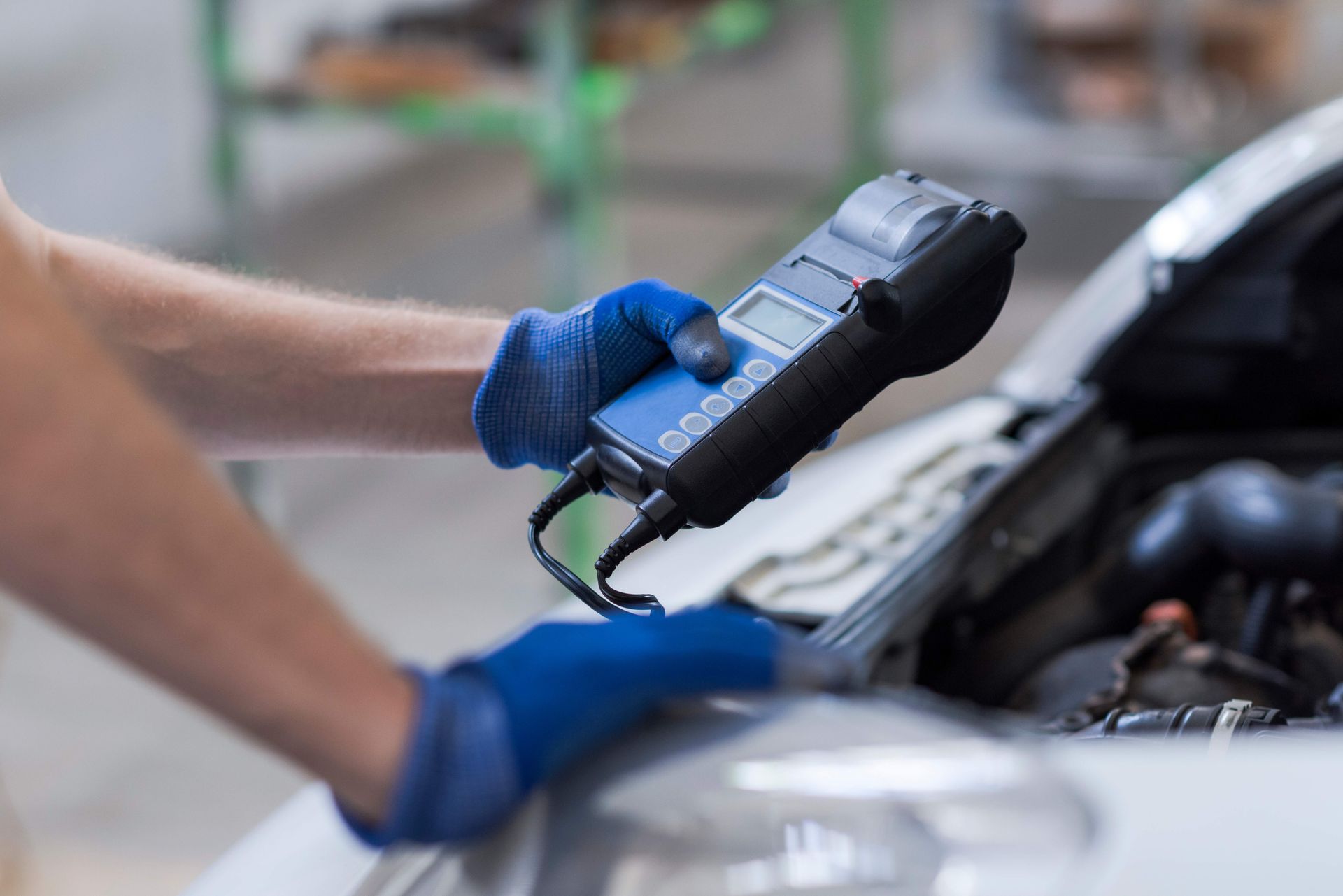Auto Diagnostics for Reno
What are Automotive Diagnostics?
As a vehicle owner in Reno, you may have heard the term "auto diagnostics" being used when discussing car maintenance and repair. Auto diagnostics is a crucial aspect of modern vehicle ownership, as it helps you identify and address potential issues with your vehicle before they become major problems. In this section, we will explain what auto diagnostics are, why they are important, and how they benefit Reno vehicle owners.
What Are Auto Diagnostics?
Auto diagnostics, also known as vehicle diagnostics or onboard diagnostics (OBD), refer to the process of using specialized tools and software to monitor and assess the health and performance of your vehicle's various systems. These systems include the engine, transmission, brakes, emissions, and more. Auto diagnostics involve accessing the vehicle's computer system, which is commonly referred to as the Engine Control Module (ECM) or Powertrain Control Module (PCM).
Key Components of Auto Diagnostics
Key Components of Auto Diagnostics:
1. Diagnostic Tools: Mechanics and technicians use diagnostic tools like OBD-II scanners to communicate with your vehicle's computer. These tools can read and interpret error codes, data streams, and sensor readings.
2. Error Codes: When your vehicle's computer detects an issue within its systems, it generates error codes known as Diagnostic Trouble Codes (DTCs). These codes provide valuable information about the problem's location and nature.
3. Data Analysis: Auto diagnostics involve analyzing various data points, such as engine temperature, fuel efficiency, air-fuel ratio, and more, to identify any deviations from normal operation.
Why Auto Diagnostics Are Important?
1. Early Problem Detection: Auto diagnostics allow for the early detection of potential issues within your vehicle's systems. Addressing problems promptly can prevent costly repairs and breakdowns in the future.
2. Improved Safety: Identifying safety-related issues, such as brake or airbag malfunctions, through auto diagnostics ensures that you and your passengers remain safe on the road.
3. Enhanced Fuel Efficiency: By monitoring the vehicle's performance, auto diagnostics can help optimize fuel efficiency, saving you money on gas.
4. Emissions Control: Auto diagnostics play a crucial role in keeping your vehicle compliant with environmental regulations by monitoring and controlling emissions-related components.
5. Efficient Repairs: When you take your vehicle to a mechanic, the information provided by auto diagnostics allows them to pinpoint the problem quickly, reducing diagnostic time and labor costs.
How Auto Diagnostics Benefit Reno Vehicle Owners:
1. Climate Adaptation: Reno's fluctuating climate can impact your vehicle's performance. Auto diagnostics help in detecting issues related to temperature changes, ensuring your vehicle runs smoothly year-round.
2. Altitude Adjustments: Reno's high altitude can affect engine performance. Auto diagnostics help identify and address issues specific to the altitude, ensuring your vehicle operates optimally.
3. Savings:
By catching problems early, you can save money on major repairs and enjoy improved fuel efficiency, which is particularly beneficial given the city's varying fuel prices.

FREE Diagnostics Quote
Contact Us
We will get back to you as soon as possible.
Please try again later.
Need immediate service?
Call us right now!
Signs you need an Auto Diagnostic appointment
For Reno vehicle owners considering bringing their vehicles to MAPT Auto for automotive diagnostics, it's essential to be aware of some common signs and symptoms that indicate the need for professional diagnostic services. Ignoring these signs can lead to more significant issues and costly repairs down the road. Here are some signs you should look out for:
Check Engine Light (CEL) On:
If your vehicle's check engine light is illuminated on the dashboard, it's a clear indication that there's a problem within the engine or related systems. The specific issue can only be determined through automotive diagnostics.
Poor Fuel Efficiency
A sudden drop in fuel efficiency, such as a decrease in miles per gallon (MPG), could be a sign of various issues, including a malfunctioning sensor, fuel system problems, or engine inefficiencies. Automotive diagnostics can pinpoint the cause.
Engine Performance Issues
If you notice irregular engine idling, stalling, rough running, or a lack of power when accelerating, these are signs that something is amiss with your engine or its components. A diagnostic check can identify the underlying problem.
Unusual Noises
Strange noises coming from your vehicle, such as grinding, squealing, knocking, or clunking sounds, could indicate issues with the engine, transmission, suspension, or brakes. A diagnostic assessment can help diagnose the source of the noise.
Transmission Problems
Slipping gears, delayed shifts, or harsh shifting can all point to transmission issues. Diagnostics can identify whether the problem is related to the transmission itself or other connected components.
Warning Lights
In addition to the check engine light, other warning lights like the ABS (Anti-lock Braking System), traction control, or airbag system lights can indicate problems that require diagnostic attention.
Electrical Issues
Malfunctions in the vehicle's electrical systems, such as power windows, door locks, lights, or accessories, may require diagnostics to locate faulty wiring, sensors, or control modules.
Unusual Smells:
Strange odors like burnt rubber, a sweet smell (indicative of coolant leakage), or a burning scent could signal various issues, including overheating, fluid leaks, or electrical problems.
Decreased Brake Performance
If your brakes feel less responsive, squeal, or vibrate when applied, it's crucial to have a diagnostic check to determine if brake pads, rotors, or other components need attention.
Emission Problems
Failed emissions tests or excessive smoke from the exhaust can indicate issues with the vehicle's emissions control system, which often requires diagnostic assessment for accurate diagnosis.
Unexplained Fluid Leaks
If you notice puddles or stains beneath your vehicle and can't identify the source, a diagnostic evaluation can identify the type and location of the fluid leak, whether it's oil, coolant, transmission fluid, or brake fluid.
Overheating
Consistent engine overheating can lead to severe damage if left unaddressed. Automotive diagnostics can help identify the cause, whether it's a cooling system problem, thermostat issue, or radiator malfunction.

FREE Diagnostics Quote
Contact Us
We will get back to you as soon as possible.
Please try again later.
Quick & Reliable
Quick quotes, quick repairs, seamless 24/7/365 drop offs and pick-ups.
Location
Call
Reno's #1 customer service based auto repair shop. Get fast quotes, fast repairs, and the honesty you deserve in your local mechanic.
Privacy Policy Link
Terms of Use
Services
Working hours
- Mon - Thu
- -
- Friday
- -
- Sat - Sun
- Closed
All Rights Reserved | MAPT Automotive
Website and Digital Marketing by Talents Into Profits (TIP)

